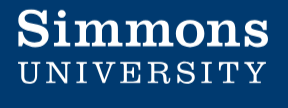Do you want to be an effective decision-maker and influential leader? To succeed in economics, you'll need a strong understanding of issues like health care reform and inequality, institutions such as the Federal Reserve and the International Monetary Fund, and debates about government debt, globali

Do you want to be an effective decision-maker and influential leader? To succeed in economics, you'll need a strong understanding of issues like health care reform and inequality, institutions such as the Federal Reserve and the International Monetary Fund, and debates about government debt, globalization and sustainability.
Program Requirements:
Core courses
All five are required; note the possible substitutions.
STAT-118: STAT 227 Intermediate Statistics: Design & Analysis or STAT 229 Regression Models may substitute for STAT 118
Elective Courses
Select four from the following list, including at least two at the 200 level or higher.
ECON 393: not counted as an Economics Elective if used for the Capstone requirement.
Minor Requirements:
The minor in economics requires successful completion of a total of five courses, consisting of
And any three Economics elective courses other than ECON 393.
Customize Your Program
A minor in economics is also available, and requires successful completion of a total of five courses, consisting of ECON 100, ECON 101, and any three economics electives courses other than ECON 390 and ECON 393. Note: ECON 200 and 201 cannot be counted toward the minor
Located in the heart of Boston, Simmons University is a private university, home to a respected women’s undergraduate program, as well as coeducational graduate programs in nursing and health sciences, liberal arts, business, communications, social work, public health, and library and information science.
Simmons has established a model of higher education that only today other colleges and universities are beginning to adapt: the combination of education for leadership in high-demand professional fields with the intellectual foundation of the liberal arts. The result is a Simmons graduate prepared not only to work, but to lead in professional, civic, and personal life — a vision of empowerment that Simmons calls preparation for life’s work.
The Simmons story is one of growth, innovation, and a solid foundation — fueled by on-the-ground and online enrollment, and investments in its campus and technology.
Our Mission & History
For more than 100 years, Simmons has put the needs of our students first. Through an education that combines intellectual leadership with professional preparation, we help students lead meaningful lives and build successful careers for the 21st Century.
Our Future
At Simmons, innovating and adapting to the needs of the modern world is key to our history, and our future. Simmons is a small university and a diverse urban university at a time when the landscape of higher education is constantly evolving. We're committed to enhancing Simmons by building on our strengths, preserving our Mission, and creating a sustainable structure for the future.
© 2025 coursetakers.com All Rights Reserved. Terms and Conditions of use | Privacy Policy